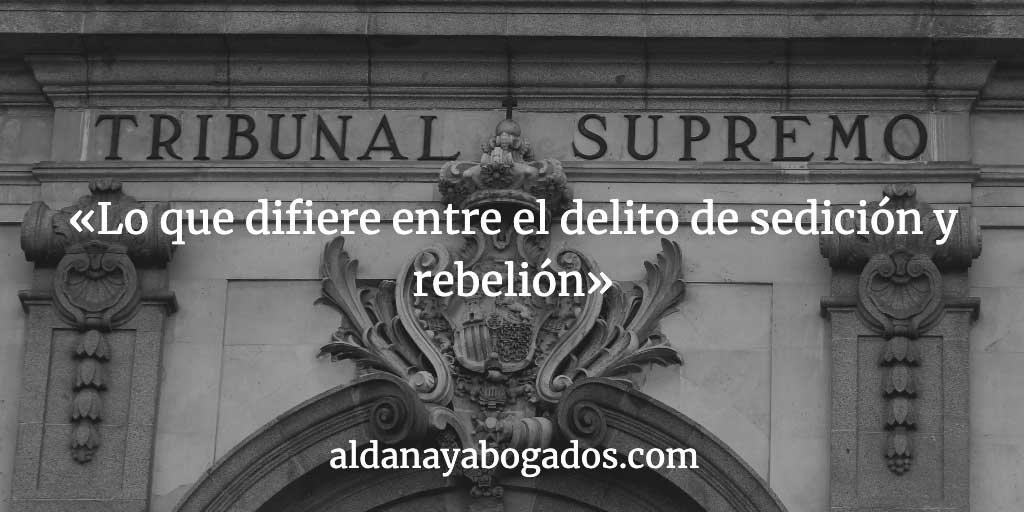The case of the "procés" brought to the Spanish public's attention the difference between sedition and rebellion, as contemplated in the country's Magna Carta. The twelve leaders of the Catalan independence process faced a trial before the Supreme Court that finally ended with a sentence for the crime of sedition and rebellion. misappropriation of funds.
What is different between the crime of sedition and rebellion?
For Spanish law, rebellion is more serious than sedition. and identified in article 472 of the Penal Code, to determine responsibilities on those who rise up in a violent and public manner, with the intention of repealing, suspending or totally or partially modifying the Constitution, as well as, declaring the independence of a part of the territory. Those accused of this crime may face up to 25 years in prison. Fundamental to their identification and conviction is the use of violence, which has only been registered by Spanish law in the attempted coup d'état of 1981. The leaders of this event were sentenced to 30 years in prison, the maximum penalty in these cases when weapons have been wielded, havoc has been caused or serious violence has been exercised against people.
Sedition is defined in Article 544 of the Penal Code as a crime of disturbing public order.. It contemplates the penalty for those who publicly and tumultuously rise up to impede, by force or outside the legal mechanisms, the application of measures or the legitimate exercise of the functions of a public official. Sedition carries a penalty of four to eight years imprisonment.The term of imprisonment is 10 years for the leaders or 15 years for the authorities who incur in these actions. However, in the occurrence of this crime, acts of violence that affect others or public property cannot be recorded.
The Spanish supreme court ruling
This is why the Spanish Court ruled out the crime of rebellion in the case of the procés. consummated proposed by the Prosecutor's Office of the European country. Despite the fact that in 2017 episodes of violence were recorded in Catalonia, the highest judicial authority stressed that these were not of the magnitude required to be considered rebellion, since the violence was not consummated in an instrumental, functional, preordained in a direct way to encourage the rebels. In this case the violence was executed to achieve secession and not to create a violent climate that would merit new measures.
The sentence gives as the highest penalty 13 years of imprisonment to the former vice-president of the Generalitat, Oriol Junqueras.. Along with him, 11 have been sentenced under various modalities for their participation in the case. All the prisoners could enjoy the so-called open regime, thanks to which they would only go to sleep from Monday to Thursday, which makes the sentence more flexible.













